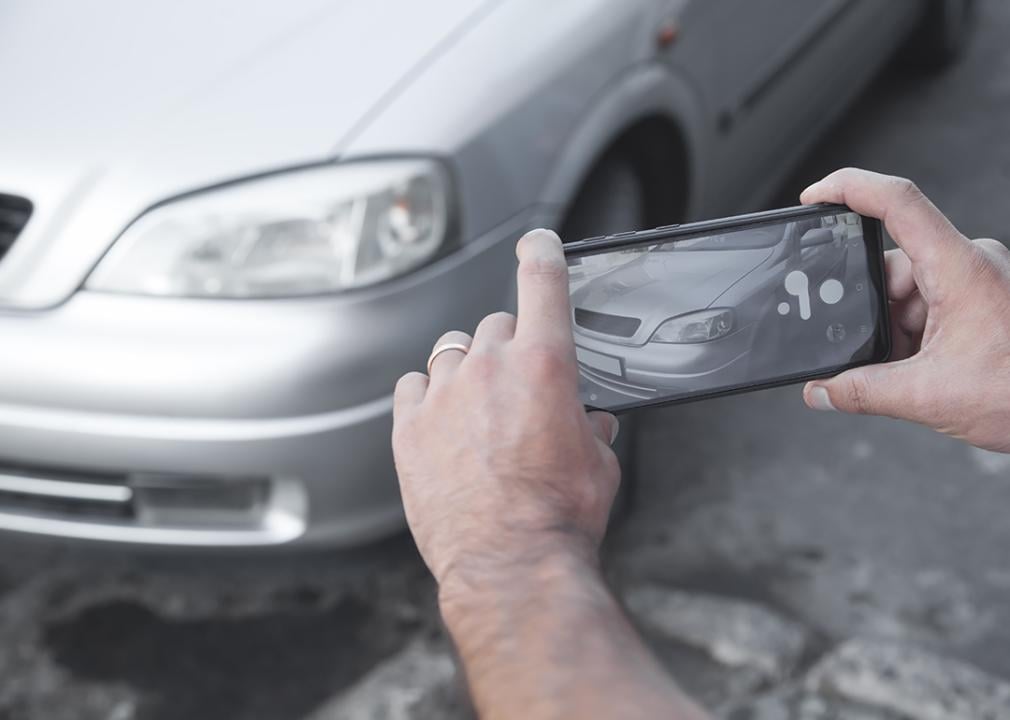How to sell a car privately in 10 steps

ANDRANIK HAKOBYAN // Shutterstock
How to sell a car privately in 10 steps
Picture of a car for sale being taken using a smartphone.
Selling your car privately can be the best way to maximize the amount of money you get for it. However, it does involve more research and extra effort compared with other methods such as selling to a dealer or selling your car online.
In this guide, CarGurus outlines some steps you can take to smooth the way for a quick—and hopefully profitable—sale.
1. Find Paperwork and Document Your Car’s Maintenance
Before you start, ensure you’ve gathered all the required paperwork. No matter what sort of car you’re selling, you’ll need the vehicle title. You may also need an odometer reading and warranty information. Check with your state’s Department of Motor Vehicles to get a complete list of the documents required to complete a sale.
After locating documents like the car title, it’s a good idea to pre-prepare a bill of sale. Next, track down any maintenance records you have, and get a vehicle history report; you’ll need to provide a vehicle identification number or license plate number to get this report.
Head over to the Safety Issues & Recalls page on the website of the National Highway Traffic Safety Administration to see if there are any open recalls on your vehicle. If you discover open recalls on your vehicle, either take your car in to have the fix applied or, if that’s not possible, collect documentation regarding the proposed fix. Eliminating potential headaches like these will make your car more attractive to potential buyers.
If you’re selling a car you’re still paying off, gather the financing paperwork and contact the lender. The lender can provide you with a payoff quote and let you know how best to proceed with the sale and handle things with the new owner.
2. Research the Car’s Value and Establish a Selling Price
Use online market value calculators to help determine your car’s worth. Obtaining that valuation data will help you set a fair selling price. Also, understanding how much your car is worth in a private sale is critical to effective negotiating.
3. Clean Your Car
When a car dealer prepares to sell a car, they spend a fair amount of money reconditioning it. You don’t need to break the bank, but whether you’re preparing to trade your vehicle in or sell it yourself, you’ll do well to spend a little time and money making it look nice.
At a minimum, you should expend some elbow grease washing and waxing your car, but don’t discount the value of a professional detail. Cleaning the interior—particularly the upholstery and floor mats—can pay serious dividends and make an old car look nearly new.
4. Write the Ad
Including a comprehensive, well-written description in your vehicle’s listing can hook shoppers—and make them more willing to take it for a test drive (and eventually fork over their hard-earned cash in exchange for your car).
If your car has any mechanical or cosmetic faults, be sure to document them in your listing. Also, take plenty of high-quality photographs of your car—including ones that show any dents and dings. It may seem counterintuitive, but you’ll attract more legitimately interested shoppers if you present your car truthfully.
5. Get the Word Out
The more shoppers interested in your car, the stronger your negotiating position will be. Write an ad and put it in the rear window. Put an ad up on Craigslist. Post your for-sale listing on Facebook and X. Add it to your TikTok channel. You never know where a private buyer might come from, so cover as many bases as possible.
6. Get an Instant Cash Offer as Backup
You may think, “I’m trying to sell my car to a private party—why do I need an instant cash offer?” Here’s why: Getting an instant cash offer can help establish a floor for your price negotiations. It can also serve as a backup if, for one reason or another, you cannot find a private party buyer for your used car.
7. Know a Good Deal When You See One
Be willing to accept a reasonable offer. It might be tempting to wait and see if another buyer willing to spend a little more appears, but it’s not always the most fiscally prudent choice.
The longer you hold onto your car, the longer you’ll be on the hook to insure it. Also, some states will even refund part or all of your car’s registration fee when you surrender your license plates after a sale.
8. Be Discerning When Deciding Which Potential Buyers to Meet
Simplify the process of interacting with buyers by setting up a separate email account and Google phone number to manage the transaction. And remember, time is money. So before meeting with potential buyers, have a phone conversation with them to determine if they’re serious about purchasing the car.
9. Schedule Test Drives
Meet at a public place—such as a mall or coffee shop—to facilitate test drives. It’s a good idea to take a friend for safety. Your sale won’t be profitable if you wind up becoming a crime victim in the process.
10. Finalize the Transaction
The negotiation process will likely begin after the test drive when you find a buyer. CarGurus recommends finalizing the transaction either at your bank or at a local police station (many have designated areas for large transactions like this). Checks can bounce, so ask for cash or a cashier’s check to complete the payment.
![]()
This story was produced by CarGurus and reviewed and distributed by Stacker Media.
